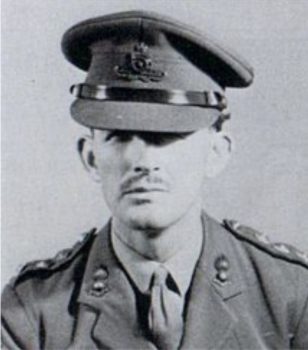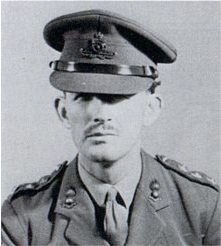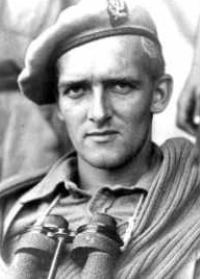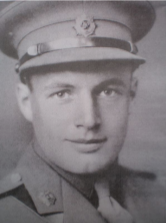Operation Postmaster was one of the most audacious raids of the Second World War. In August 1941 a small force working for the Special Operations Executive (SOE) departed Poole in a converted Brixham trawler called the Maid Honor. Their destination was equatorial West Africa where their initial task was to carryout operations against German U-boats operating in the area. The SOE had been established in great secrecy in July 1940 for the purpose of sabotage and subversion by creating chaos and confusion across the occupied countries. ‘Set Europe ablaze’ had been Prime Minister Winston Churchill’s brief.
Brigadier Colin Gubbins, a master of guerrilla warfare, was the driving force behind the SOE. Short, but lean and athletic for a man in his mid-forties, Gubbins was always immaculately turned out in Savile Row suits and handmade shoes. But underneath his sharp exterior was a true fighting man. He had won the Military Cross in the mud at Flanders during the First World War – but the horrors of the Western Front hadn’t stopped him – for fighting was in his Scottish blood. After the war he’d found himself in Russia having a go at Lenin’s Bolsheviks. Then in Ireland, where he’d discovered guerrilla fighting firsthand during running battles with Michael Collins and the Irish Republican Army.
Colin Gubbins
Commanding the Maid Honor was Major Gus March-Phillipps, whom Gubbins had recruited from No.7 Commando. The sixty-feet vessel was only big enough for a crew of eleven so March-Phillipps, and his second-in-command, fellow No.7 Commando and later 2 SAS, Captain Geoffrey Appleyard had selected their men carefully. Among them a fearless Dane called Anders Lassen – another who would later serve with the SAS before receiving a posthumous Victoria Cross in 1945.
Gus March-Phillipps
Anders Lassen
Despite having the appearance of a standard fishing trawler, the Maid Honor was far from it. Her ply-wood deckhouse, which could be easily collapsed, contained and array of weapons including a Vickers gun, four Bren guns, four tommy guns and a stockpile of grenades and explosives. On board the crew wore civilian clothing and after a six-week voyage arrived safely in Freetown in tropical West Africa and waited for further instructions.
The SOE had been active in West Africa and an agent became aware of suspicious activity that gave Gubbins the opportunity that he had been waiting for. In the neutral Spanish controlled harbour of Santa Isabel, on the island of Fernando Po, twenty-five miles from the coast, three suspicious ships had been observed in the harbour. The agent suspected that the Italian and German vessels were acting as supply ships for U-boats in the area.
Sabotage by March-Phillipps and his men was the obvious choice. However, the political consequences of sinking boats in Spanish waters, and the fear of Franco’s pro-Axis Spain being drawn into the war, took that option off the table. March-Phillipps consulted with Appleyard and an ingenious plan was hatched.
Geoffrey Appleyard
Using all the resources at their disposal, including borrowing two powerful tugs from Lagos and seventeen men from the Nigerian Colonial Service, Operation Postmaster was launched. On 14 January 1942, under the cover of darkness March-Phillips and his men crept into the harbour aboard the tugs.
Earlier in the evening the ship’s captains had left their vessels to attend a dinner party organised by the SOE agent. Undetected the tugs pulled alongside the ships, quickly boarded and overpowered the crews. Towing cables were attached to the tugs and plastic explosives used to cut the anchor chains. Despite the noise from the explosions the Spanish garrison failed to react, and the two tugs quietly towed the three enemy ships out of the harbour.
For six-days the towed their bounty until they made a pre-arranged rendezvous with HMS Violet who duly seized and impounded the enemy ships. The following day all six vessels sailed into Lagos harbour to a hero’s welcome, bringing to an end one of the most daring acts of piracy ever seen on the high seas.
For books by Ian McHarg click here








I enjoyed this Ian keep up the good work mate.
I read the book called Churchill secret warriors about these men and my god these men where something special plus this was a great read to lan.
Pingback: North Africa - No 7 Commando's Raid on Bardia Ian McHarg